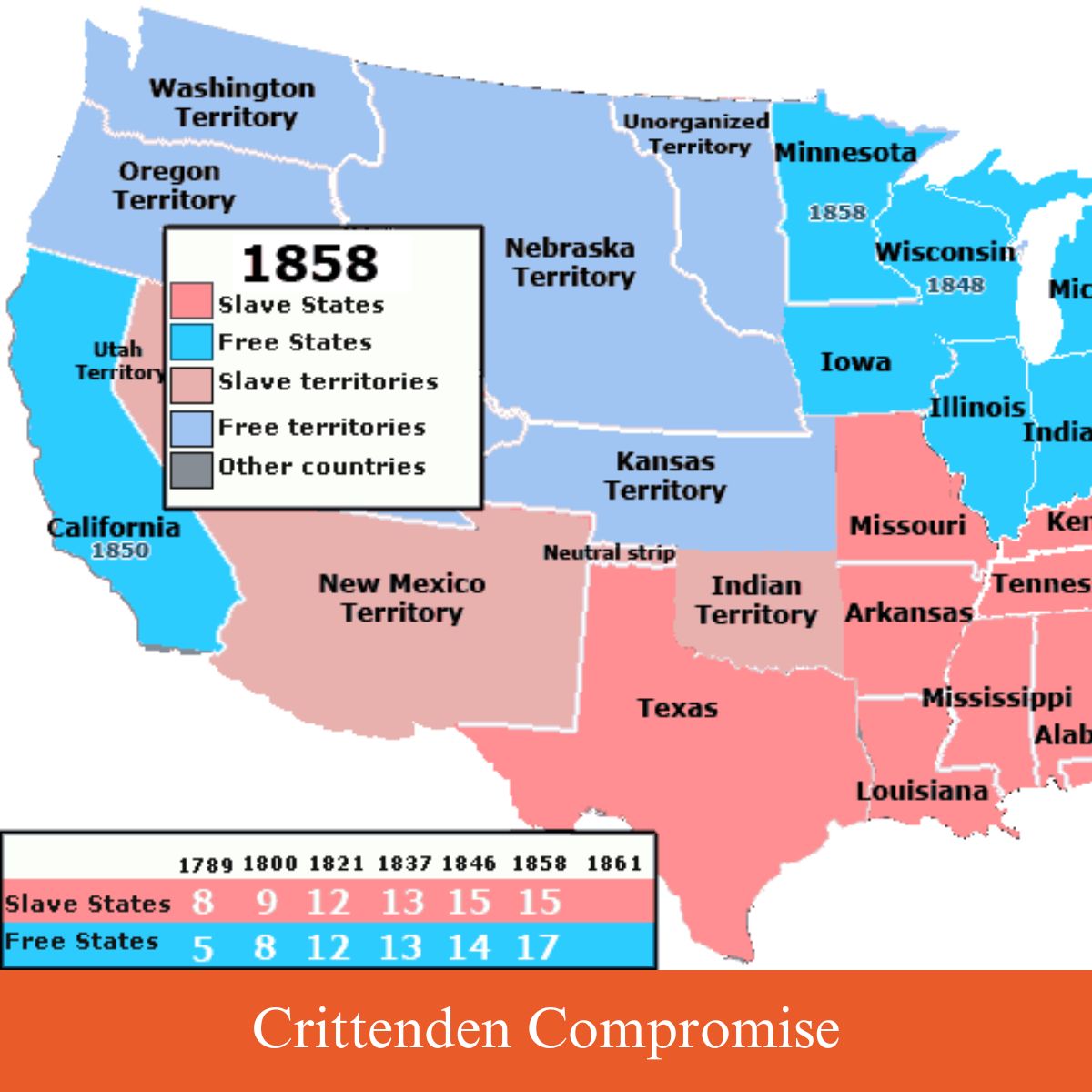The Crittenden Compromise was a proposal introduced by John J. Crittenden in an attempt to solve the secession crisis in the United States. It was popular among the southern members of Congress and unpopular among the Northern Republicans. President-elect Abraham Lincoln spoke out against it, which killed any chance of it getting passed.

Components
Amendments to the Constitution
- Slavery would be prohibited in any territory of the United States "now held, or hereafter acquired," north of latitude 36 degrees, 30 minutes line. In territories south of this line, slavery of the African race was "hereby recognized" and could not be interfered with by Congress. Furthermore, the property of African slaves was to be "protected by all the departments of the territorial government during its continuance." States would be admitted to the Union from any territory with or without slavery as their constitutions provided.
- Congress was forbidden to abolish slavery in places under its jurisdiction within a slave state, such as a military post.
- Congress could not abolish slavery in the District of Columbia so long as it existed in the adjoining states of Virginia and Maryland and without the consent of the District's inhabitants. Compensation would be given to owners who refused consent to abolition.
- Congress could not prohibit or interfere with the interstate slave trade.
- Congress would provide full compensation to owners of rescued fugitive slaves. Congress was empowered to sue the county in which obstruction to the fugitive slave laws took place to recover payment; the county, in turn, could sue "the wrongdoers or rescuers" who prevented the return of the fugitive.
- No future amendment of the Constitution could change these amendments or authorize or empower Congress to interfere with slavery within any slave state
Congressional Resolutions
- That fugitive slave laws were constitutional and should be faithfully observed and executed.
- All state laws which impeded the operation of fugitive slave laws, the so-called "Personal liberty laws," were unconstitutional and should be repealed.
- The Fugitive Slave Act of 1850 should be amended (and rendered less objectionable to the North) by equalizing the fee schedule for returning or releasing alleged fugitives and limiting the powers of marshals to summon citizens to aid in their capture.
- That laws for the suppression of the African slave trade should be effectively and thoroughly executed.
Proposal and Results
- After the election of Abraham Lincoln, the southern states began to talk about secession from the Union. They believed their lifestyle and institutions were under attack and that the United States government would infringe on the sovereignty of their state.
- The compromise would guarantee the existence of slavery and continue its expansion into the West.
- The compromise was popular with the South but unpopular with the North.
- House of Representatives and the Senate rejected Crittenden's proposal. It was part of a series of last-ditch efforts to provide the Southern states with sufficient reassurances to forestall their secession during the final session of Congress prior to the Lincoln administration taking office.
- The resolution failed to gain any traction again at the Peace Conference of 1861, which was led by former President John Tyler. It was becoming clear that many could not stomach the expansion of slavery any longer and that the Civil War was going to be inevitable.
